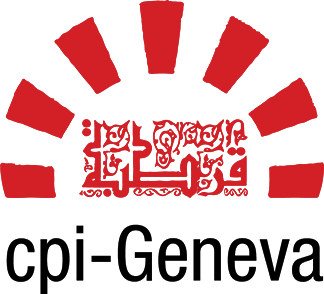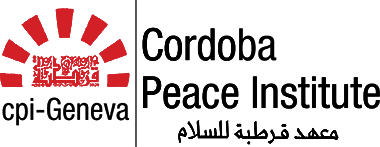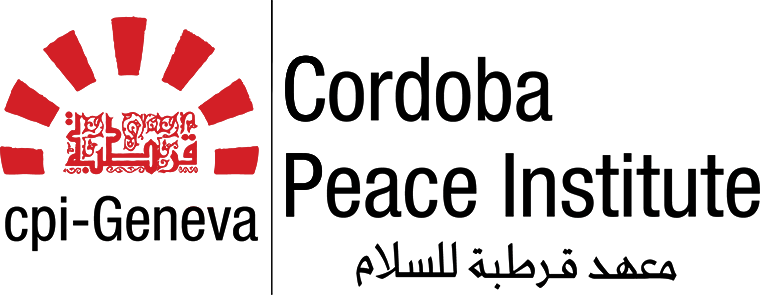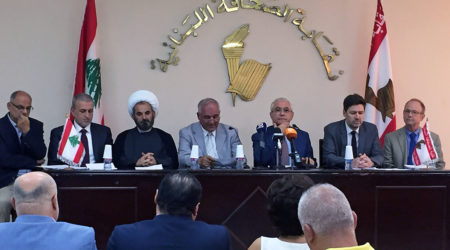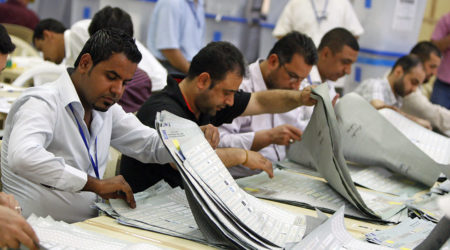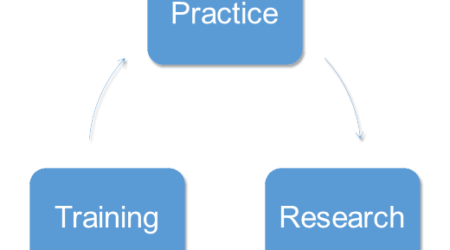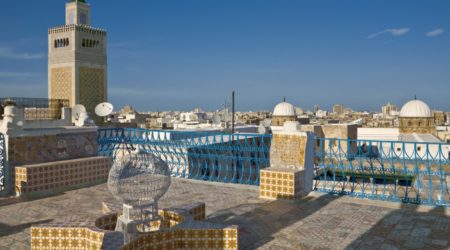Hazem Salem: Certainty, Uncertainty and Cautiousness
June 30, 2013 marks the last day of the first year of President Morsi’s rule in Egypt. For his supporters, this is something to celebrate as Egypt completes a year of democracy under democratically elected President. For his opponents, this is his last day in power.
The language of certainty was much higher amongst the opponents maybe a month ago, when the mobilization of Rebel (Tamarrud) movement was high collecting signatures to sack the President (withdraw confidence as they called it). The support to the President at that time from his group (the Muslim Brotherhood) was rather doubtful; some people expected that the group that dominated the Egyptian politics over this year of Morsi’s rule would sacrifice the President to keep the organization intact, or that the Brotherhood would make all the possible retreats and present all the possible concessions to save itself and maybe the President. The anticipation was that Morsi would accept a referendum on his rule if not an early Presidential elections.
To defuse this certainty, Impartiality (Tagarrud) movement was launched as an opponent to Tamarrud. It was exactly the same way the Conscience (Dameer) Front was established to defuse the Salvation (Inquaz) Front.
Yet, the difference was striking. Dameer Front was made of benign quasi-Islamist and partially-secular supporters of Morsi. It was answering the Salvation Front made of secular liberal and socialist opponents. The realm of ideology dichotomy was still apparent; and things were not sorted as Islam versus Secularism at that point. But the second wave of opposing Morsi was totally different; it was fully radical against the Brotherhood and their so called “Islamic Rule” as the tone became higher by Tamarrud and the call became pro having a full rebellion and establishing a whole new regime through the “popular revolutionary will” and by means of violence (if necessary). This was highly spear-headed this time by the Popular Current (Hamdeen sabbahi) whose ideology matches that of Tamarrud and where the key leaders of the rebel movement come from this Populist Nasserist Socialist current. The tone was totally high against the Brotherhood as an Islamist group rather than a political opponent represented through the Freedom and Justice Party. Describing the Brotherhood as Kherfan (cheep) was abundant to the point that the cause was portrayed as a battle between Islam versus Secularism. This ignited a fully Islamist support to Morsi in the form of Tagarrud movement spear-headed by the Jamaa Islameyya and its Construction and Development Party.
Having the Salvation Front coming back to the battle field to join the popular Current in supporting Tamarrud only made Tagarrud more adamant to collect signatures for Morsi and to voice support to him in this final battle between Islam and Secularism. This also attracted much of the Salafi current (with the exception of Noor Party) to support Morsi. Yet, though Noor Party does not see that matter as a fight between Islam and Secularism, it became neutral between Tamarrud and Tagarrud while in the previous confrontation it was very close to the Salvation Front.
Though Morsi survived the wave of the Salvation Front without much street mobilization and without having to take his people and his other supporters to the streets in massive rallies, the situation with Tamarrud was different. The Jamaa Islameyya and a huge element of the Salafi Current took the initiative to “show force in the streets” to defuse the claim of the massive popular support that Tamarrud managed to mobilize. After a very pale appearance of Tamarrud on May 17, 2013 in Tahrir square, the Islamists from all trends took their time to mobilize in Rabaa Al-Adaweyya in Nasr City on June 21, 2013. The mobilization was massive compared to that mobilized by Salvation Front or Tamarrud till that point. The tone and language was also different as it saw the issue as a battle between Shariaa and Islamic rule supporters on one side against the anti Shariaa and anti Islamic rule on the other.
This certainty by the Islamists in supporting Morsi and Brotherhood attempted to defuse the mobilization by Tamarrud and to get them to come to dialogue (called for by the Presidency). Yet to the contrary, Tamarrud ignored totally the signals and continued “without the shred of uncertainty” to mobilize for the massive popular procession that would come from different areas and pour into Tahrir in a “new Egyptian revolution”. The uncertainty amongst the Tamarrud supporters might be there, but there is no way to show it now as the final make-or-break battle is near in few days. The difference here also lies in the fact that Tamarrud is a rebel movement that plays by the “all-or-none” rule, which is different from the Salvation Front that is more politicized (yet it now joins Tamarrud in putting its entire stakes on a game of “all-or-none” nature).
The cautious positions were expressed by the Church, Al-Azhar and the Army.
For the Church, it is not and will not be willing to show its support to Tamarrud the way it was more expressive in supporting the Salvation Front because it would be rather difficult to get the Church engaged in Islam versus Secularism debate or in a struggle pro and anti Islamic rule and Islamic Shariaa. The Church preferred to say that it will not prevent the Christians from expressing their opinions as citizens.
For Al-Azhar, it did not show support to Morsi as it mainly preferred to stay neutral and only called for making the demonstrations peaceful. The Sheikh of Al-Azhar made it clear that Islam allows full opposition against the ruler (known in Islamic political terminology as Khorouj). This Khorouj is nothing but “Rebellion” in modern days’ language. Ahmed el-Tayyeb, the Sheikh of Al-Azhar did not make such comments about allowing the people to revolt against the ruler during the uprising against Mubarak on January 25th, 2011. His position and that of Al-Azhar were quite different by then; nothing to miss here that the Sheikh was a member of the Secretariat of Policies of Gamal Mubarak during the NDP days and he had to abandon this title when he became the Sheikh of Al-Azhar.
For the Army, it is complicated. For the good or bad to the Army, Morsi took the Supreme Council of the Armed Forces out of politics and out of power-sharing only six weeks after he became President. The new army leadership used to have very good relations with Morsi till this moment. The issue is that the Army does not want to be entangled in the political confrontation and does not want to be siding with either party. It is elementary not to forget that the Salvation Front called the Army to make a coup d’état; and the Army took ample time to study the situation and come up with an answer at the end saying: “No. There will not be a coup”. Therefore, the statements by the leadership of the Army all pour into the idea that the Army will be impartial, cautiously monitoring and watching the game, and then, interfering only in case of massive confrontation to protect the nation, the people and the State’s vital facilities.
Between the explicit certainties by pro Morsi people, the implicit uncertainty by his opponents as well as the cautious positions by the Church, Al-Azhar and the Army, Egypt waits for June 30 to come, but Morsi is not likely to leave on that day.
Hazem Salem, Brussels

